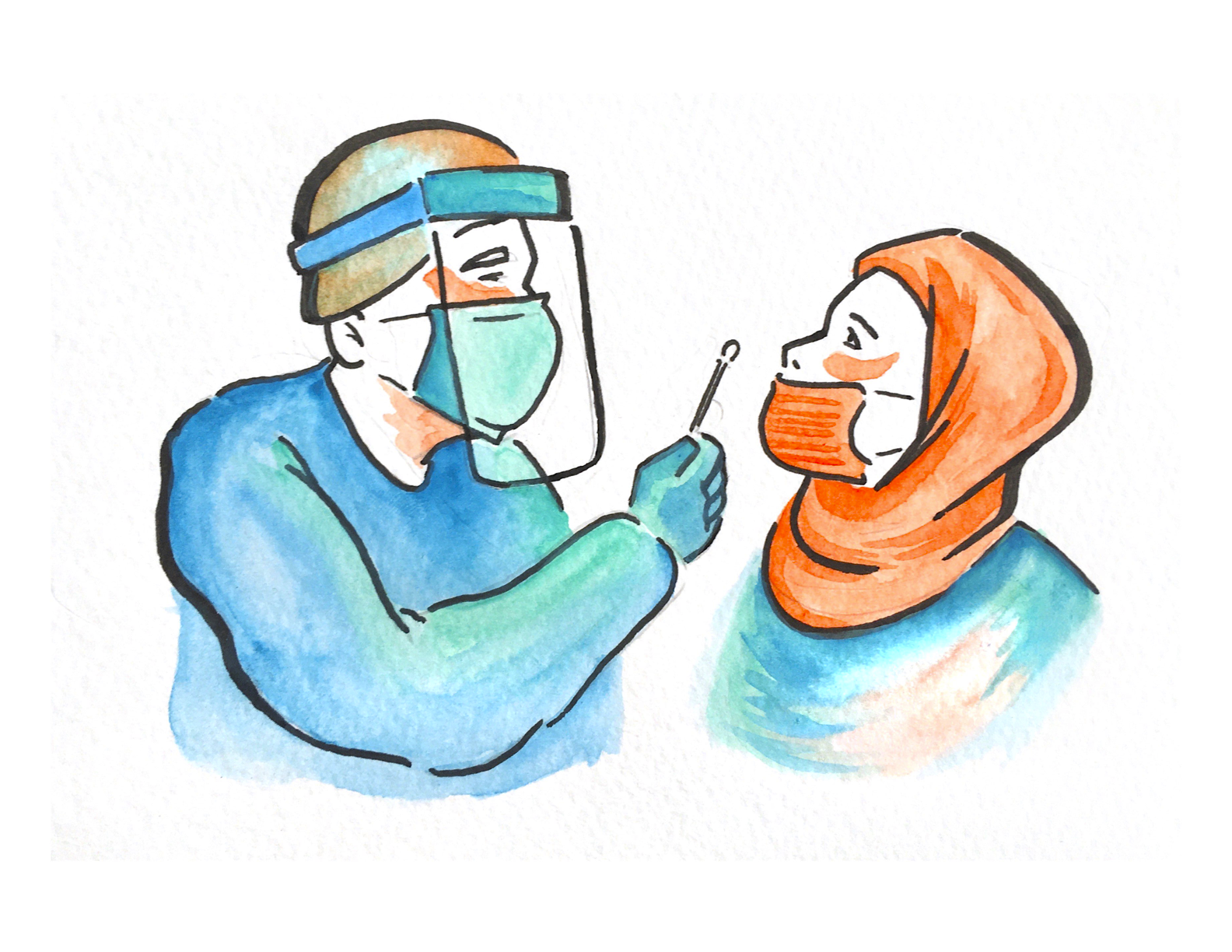
Lewis & Clark has recently experienced a growing rate of COVID-19 infections in the last three weeks, bringing the total number of students, faculty, staff and contractors infected this semester to 43 as of Oct.26.
LC’s health center provides a number of different COVID-19 tests. Rapid molecular tests cost $55 and follow-up PCR tests cost $65-$100, though very few people require a follow-up test. Nonetheless, the prices have made students hesitant to get tested. John Hancock, chief psychologist and associate dean for health and wellness, insists that students should not be discouraged by the price tag.
According to Hancock, the cost of a PCR or antigen test can be reimbursed in full to students with health insurance covered by LC Health Services. On the Health Portal, students can input their claim, print a receipt of it and send it to their health insurance provider. Hancock said there is a “reasonable chance” that the student’s insurance will fully reimburse them.
Health Services strongly urges students and staff members who have been approached for contact tracing to take PCR tests. In this scenario, the cost of testing is waived.
“PRC tests are free to anyone we require to test,” Hancock said.
Katelyn Straw ’25 recounted that last week, five Copeland Hall residents tested positive for COVID-19. Straw reported that each student sought off-campus testing sites to avoid paying the $55 cost of on-campus tests, even though off-campus testing sites can charge up to double and triple the price of the on-campus test.
During New Student Orientation, Straw was exposed to COVID-19. Although she tested negative, she developed a sore throat and a cough. She wore an N95 mask at all times while in her quad, which she shares with an immunocompromised student. Straw said she had a difficult time contacting Health Services to receive medical attention.
“I called (Health Services) over 25 times from 8 a.m. to about noon until I finally called the nurse (via) the 24-hour line,” Straw said.
The 24-hour line connected Straw, who was now waiting outside the Health Services office, to the proper specialists through a back line. She was told that she could receive a consultation in an hour’s time. Straw then had to wait for an additional hour after the tele-consultation to receive a test, which she took a little after 2 p.m. that day.
After receiving a PCR test, and a prescription for cough medicine, Straw’s account was charged $75. Straw filed a claim with her insurance and was reimbursed.
Some students have criticized the cost of testing, arguing that it disincentivizes getting tested on campus when one is exposed or displays symptoms.
Cam Sylla ’22 feels that the cost of testing compromises the school’s dedication to pandemic safety.
“I know people who have had symptoms and chose to not get tested at the school because there is no infrastructure in place to help them stay ahead of their work while isolating,” Sylla said. “Who would pay to go to this school and then pay to not go to classes?”
According to Hancock, the department’s priority has been to keep testing readily available and, more importantly, affordable.
Health Services covers the insurance of virtually any provider that covers the greater Portland area. However, the department does not cover the Oregon Health Plan (OHP), Oregon’s free and public health care option.
When a student displays symptoms of COVID-19, they should contact Health Services and coordinate a safe way to be tested. There, they receive an antigen (nasal swab) test and incur a charge of $55 to their student account.
Residential students infected with COVID-19 are instructed to return to their dorm, collect all necessary belongings and then report to an isolation room where they stay for approximately 10 days. After they have collected their items, a team of LC staff disinfect their dorm.
According to Hancock, Health Services supports the isolating students by delivering meals and providing pulse oximeters. Isolating students receive contact with Health Services six days a week. The Health Center also oversees that isolating students keep in contact with their professors and other necessary faculty members.
The rate of transmission to contact-traced individuals is 2-3%. According to Hancock, at the time of publication, there has not been a single recorded case of an in-class transmission of COVID-19 at LC.
Students with religious or medical exemptions from the COVID-19 vaccine, as well as some international students who have yet to receive the vaccine, are required to submit to weekly tests at no cost to themselves.
Health Services plans on holding an optional testing clinic before students return home for Thanksgiving, on Nov. 22. The tests will come at a cost of $55, though for students traveling internationally, the cost will be higher.
Subscribe to the Mossy Log Newsletter
Stay up to date with the goings-on at Lewis & Clark! Get the top stories or your favorite section delivered to your inbox whenever we release a new issue.

Leave a Reply